Explaining science & technology to early learners can be quite the challenge, especially when the ideas you want to covey are difficult for kids to visualise. It’s all about looking at ways to break down the communication challenge and make your preschool science lessons more meaningful for children!
The challenge
Kids aged between 3 to 5 years are incredibly inquisitive and vivacious people! They love to hold things, they love to hear stories about things, they want to be involved! The trouble is, for early learners to make meaning of their world they need to be able to visualise the concepts you are presenting and connect those concepts to their prior learning experiences… somewhat challenging for them given their limited experience! On top of this, early learners are still at coming to grips with symbolism and three-dimensional thinking let alone taking in the viewpoint of others. So knowing this, how do you describe abstract concepts like cloud formation, energy movement and other key learning ideas in such a way that preschoolers can understand?
Further reading on learning development
- Learning stages has been well described by Jean Piaget’s theory of cognitive development.
- Look further into examples of pre-operational and concrete operational learning stages
- The Social Development Theory as described by Vygotsky
It’s not just about one teaching strategy
It would be fantastic to be able to describe a ‘one size fits all strategy’ for young kids, but you very well know that this would be a fallacy. Every child has different interests/background/behaviours/fine motor skills and more, all of which combine with their developmental stage to produce a variety of learners across your preschool class. On top of this, much of abstract thinking involves symbolism, where an object takes on a meaning for something else… something that can be quite difficult for kids to grasp.
So, what do you do about it? In short… mix it up!
Make it hands-on… it’s all in the play
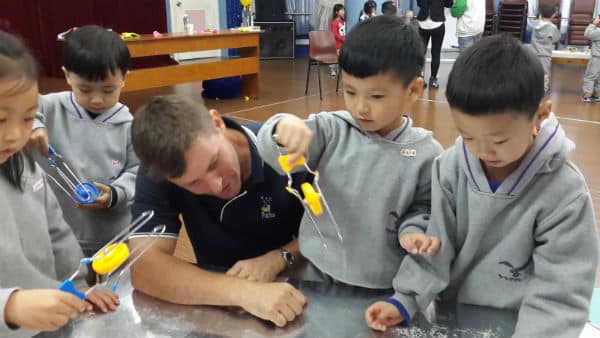
You’d be hard-pressed to find an early childhood centre that doesn’t have toys & craft materials! Kids love to use their hands – they’re almost an extension of their brain that they use to manipulate their world. As such, you need to give preschoolers the chance to explore abstract ideas using materials they can control with their hands through pretend play and exploration. There are many science experiments for toddlers and early learners that are all about manipulating objects to explore a concept … it’s just a matter of making sure that the materials are safe for them to use and that you spend the time explaining how the object they are playing with demonstrates the concept at hand.
- How are rainbows made? Try using plastic prisms or even use bubbles to split sunlight
- Teaching about magnetism? Set up a magnet exploration activity!
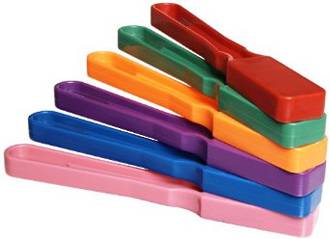
Find magnetic wands for sale here
- Want to show how volume works? Water play with plastic jugs, cups and weirdly shaped containers help, especially when you add some food colouring!
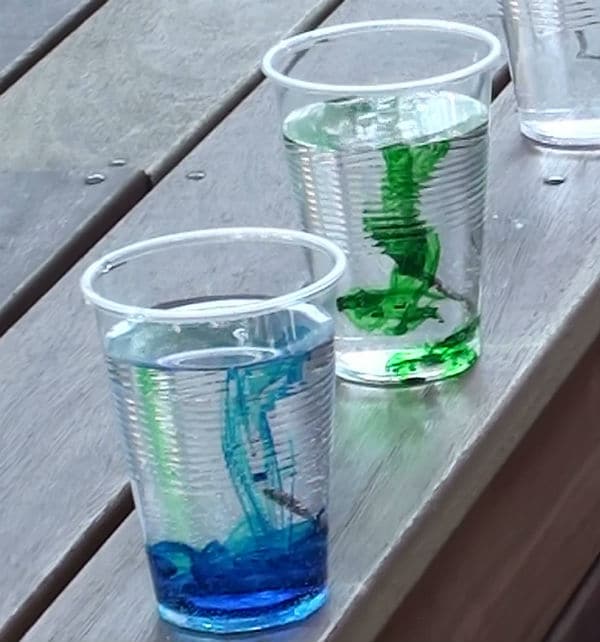
- Want to show how things move and stop? Get out the toy cars and other objects that move
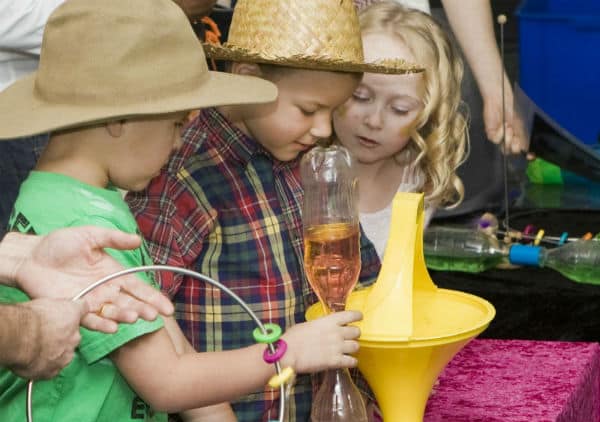
- How do plants grow? Help them create a vegetable garden and also run a bean growth experiment
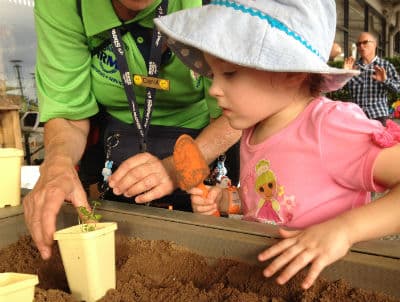
…and more!
Explore the 5 senses
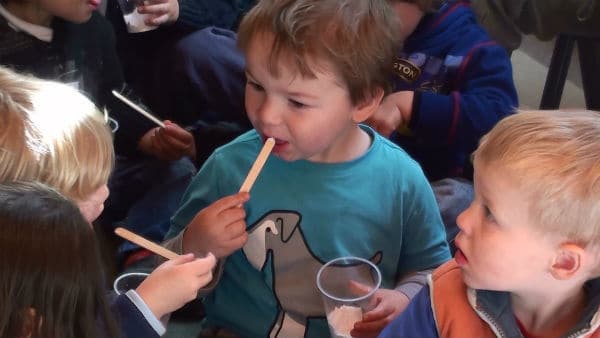
Tasting sherbet!
It’s not just about sight and touch! As long as you make sure that materials are safe for young children, consider using lessons that target their sense of taste, smell and hearing.
Some Ideas:
- Try making sherbet so kids can learn about mixtures as well as sweet vs. sour
- When teaching about nature, play animal & insect sounds as a guessing game
- Create mystery smelling boxes using cloves, peppermint, chocolate and more. The kids have to match the smells!
Include stories
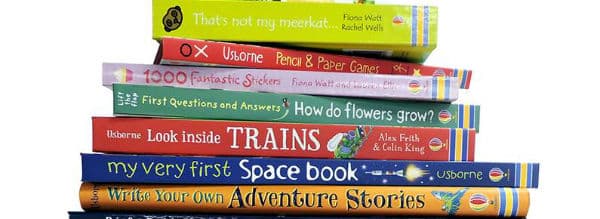
It’s often the story that goes alongside the main concept that produces the scaffold for the kids to gain deeper meaning. Stories are powerful, they provide a narrative and context that helps build their comprehension skills and grabs kid’s imagination. Stories have learning hooks embedded in the narrative which you can remind kids about whilst running hands-on activities. You don’t always need specialist science books for preschool children either, it can just be a matter of relating the classic story to the concept at hand;
Some ideas
- The Very Hungry Caterpillar by Eric Carle provides a relatable story for metamorphosis
- Use Jack and the Beanstalk has a prelude to discussing plant growth.
- The Three Little Pigs provides a fantastic story about choosing appropriate building materials
- Goldilocks and the Three Bears can be used as starting point for a discussion on hot & cold
- Who sank the boat by Pamela Allen helps kids visualise how buoyancy works
During a hands-on activity, listen for kids creating their own stories with themselves and each other – it is from these stories that the children are expressing their understanding. Consider the use of role-plays and pretend play in developing their ability to use symbolism for objects and ideas. Also, use science songs for young kids too to reinforce concepts …‘Here Comes Science’ by They Might be Giants are our favourite!
Formative assessment matters
Whilst teaching the kids you need to keep a very close eye on whether they are following what you’re talking about. When you present a topic, keep an eye out for;
- Kids unable to describe what the hands-on activity is all about
- Kids unable to describe the steps of the hands-on activity
- Kids who can repeat your lesson concept but cannot apply this same concept to a new activity
- Kids who have trouble using the materials you gave them
- Kids who have an understanding of the initial concept and so need further extension activities
Formative assessment is simply constantly re-assessing what your learners understand about your lesson which therefore gives you the tools to adjust the lesson to make an abstract concept more meaningful. You can help other adults follow the children’s progression by creating a Learning Story, whereby you write a short paragraph at the end of each day describing how the learners were responding to the activities and the insights gained. If possible, look for opportunities for the kids to take the lead in teaching you… they’ll be forced to describe what they know!
Repetition and exploration
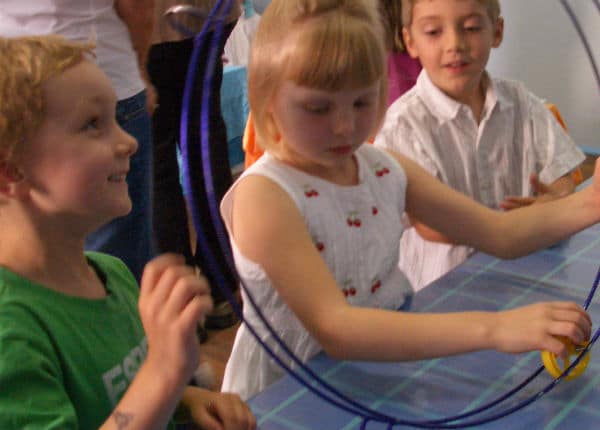
Wrapping back to the central point is very important for kids when highlighting a concept.
You may feel like you’re going in circles here, but it’s important to:
- Introduce an idea
- Take the idea a little further with a demonstration or activity
- Come back to the introduction and repeat the idea’s core message
- Expand on the first demonstration or activity whilst repeating the core message again
- Come back yet again to the core message as a student group and find out if the kids can tell you why the concept was explained by the demonstration or the activity you did.
- Ask the kids what other activity could they do that also explains that central idea further
- Move onto that new activity and start the process from step 1 all again!
- The constant repetition of a central idea helps kids to focus on what is most important and the reinforcement of the concept create the basis of a learning scaffold to build from.
Target misconceptions
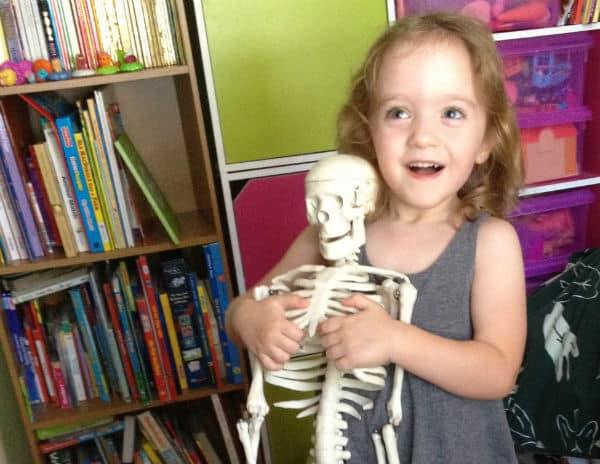
Abstract concepts are by definition… well, abstract! As adults, it’s often easy to forget how we used to think about our world. Kids use their everyday experiences to create stories in their mind about how the world works… without guidance, these stories can be skewed by their misconceptions caused by their limited understanding. When approaching any abstract topics, be aware of what the learners might already be thinking plus also consider how your explanation could either correct a misconception or create a new one!
See here for a list of common science misconceptions we’ve encountered over the years.
Keep at it!
Knowledge is built over time. Early learners need multiple examples and teaching strategies to get gain an understanding of an abstract concept. It’s by constantly providing enrichment opportunities & vibrant learning settings that early learners can build their understanding of their world. No matter what; make the learning fun & rewarding for the kids and you’ll have fun too!
Happy teaching,
NEW Primary science teaching book!
“Be Amazing! How to teach science, the way primary kids love”
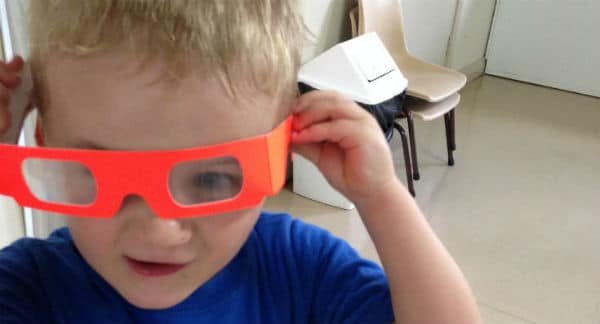
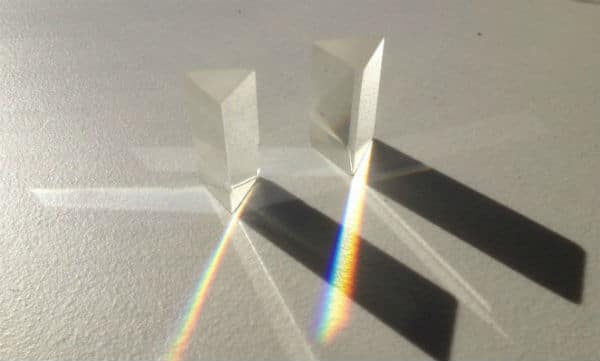
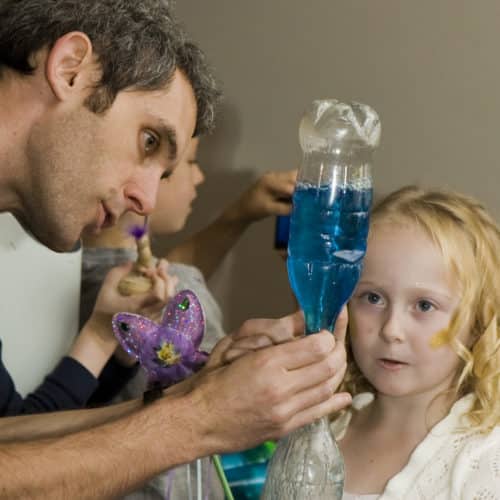
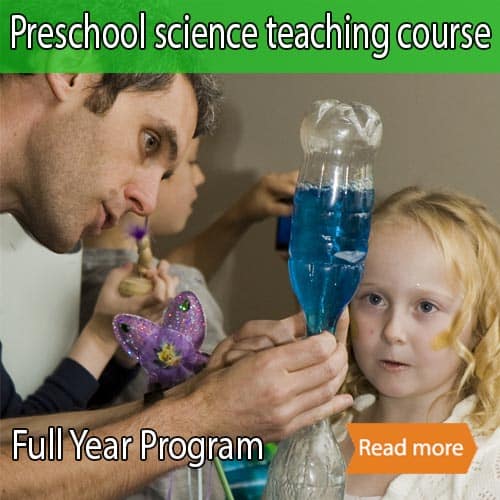
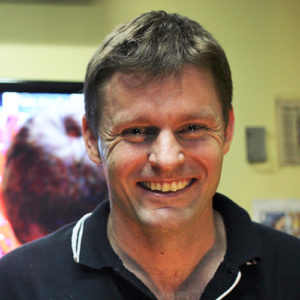
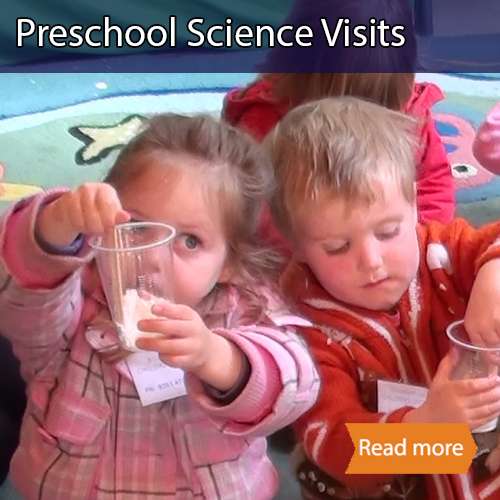
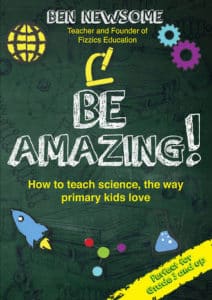

























Comments